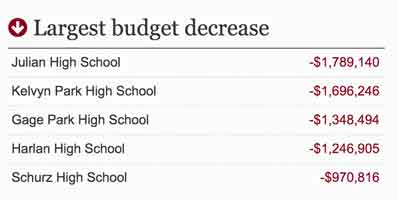In a seminar last week, I was surprised that so many of my classmates expressed an interest in reporting stories about “social justice” or the “underprivileged.” On one hand, this is awesome because its so much better than wanting to report alarmist crime stories or about the socialist conspiracy to take away American freedom. On the other hand, its really easy to report the stories of people with whom you don’t share experiences in a way that is patronizing or reinforces broadly held misconceptions or your own misconceptions.
While I don’t think my classmate’s experience with class are homogeneous, I think its safe to say that many haven’t experienced extreme poverty. My own experience is one that is firmly middle class. Why then, do I and others have such a fascination with the “underprivileged” and their stories? I’ve struggled with this question, and the best explanation I can come up with for myself is that, for as long as I can remember, I’ve been sensitive to unfairness and cruelty, so stories about these things, which often involve class or race have always resonated with me.
But what does my attention do? What does my reporting of other people’s stories of unfairness do? This is a question I’m trying to answer as I move through my graduate program and one that I hope to raise with my classmates. I think that we need to think about reporting stories about poverty or other social injustice not just because they’re powerful but because we can imagine some transformative outcome from retelling the story. More and more I’m feeling like concerned middle-class or wealthy people need to stop fixating on simply “helping” those with different resources and mobilities and examine how the practice of being middle-class or wealthy perpetuates unfair systems.
When I told a friend I was going to journalism school, she said that she felt like it was really important that journalists started looking at helping (or maybe just moving out of the way so that) people can tell their own stories. I think this idea is important. Whether there still needs to be space for telling other people’s stories really depends on the outcomes we imagine. Hopefully I can get a better answer to this question in the future.
The photo that goes with this post is from a screenshot from a video exploring teen violence by the Community TV Network’s Hard Cover News team. It’s part of a project called Chain of Change that I found out about because my friend Chiara worked with it as part of her Internship at Beyondmedia.
The Chain of Change project’s website describes the project like this:
The Chain of Change project organizes youth activists to individually and collectively strategize how to end violence by exposing its roots through the creation of media. Beyondmedia distributes video cameras to youth groups, who create short videos that challenge individuals to think about their own roles in this struggle.
I think it’s a really great example of people affected by a particular problem, in this case youth affected by violence, are telling their own stories to help meet community needs.
